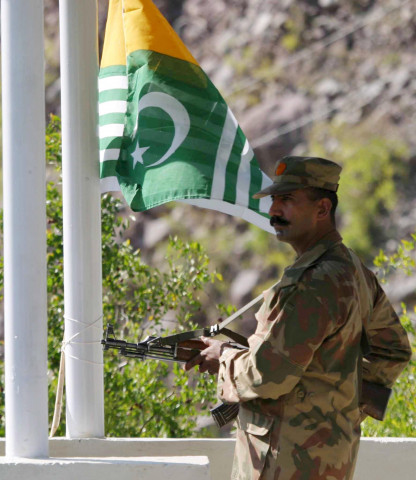On the Pakistan India border – a cold peace
The trade, limited to 21 items, is small, hampered by the fact that it has to be done through a barter system.

The tenuous ceasefire has helped crack open the Kashmir border, but only slightly. In 2008, the India and Pakistan had agreed to allow limited trade and travel between the two parts of Kashmir they control, bowing to a long-standing demand of residents who often describe themselves as trapped between two big armies.
The trade, limited to 21 items, is small, hampered by the fact that it has to be done through a barter system because the two governments cannot reconcile themselves to accepting the other’s currency, or even a third currency, in Kashmir.
Both fear accepting any of these measures would amount to relinquishing each country’s claims over the whole of the region.
Traders have been left to their own devices, exchanging goods by using their own formula for calculating the value of the Pakistani rupee against the Indian rupee.
Still, it is a tentative opening that many believe could be the way to break the 60-year-long political stalemate over Kashmir. “Even the psychological impact of opening of our borders is huge,” said Shakeel Qalandar, a former president of the Federation Chambers of Industries Kashmir. “For 50 years, the only route open to us was south to India. Now a window has opened to undivided Kashmir.”
Softening the borders of Kashmir through easier trade and travel was the basis of a 2007 draft roadmap agreed to by emissaries of India and Pakistan in secret, but it fell through because both governments got embroiled in difficulties at home.
Last month, the foreign ministers of the countries agreed to increase the two number of trading days at two points on the Kashmir frontier from two days to four a week and to dispose of applications for travel across the border within 45 days, instead of the three to four months it normally takes.
“They can do so much more for Kashmir, but the trust is lacking,” said. “They take two steps forward and then quietly go back a step,” said Arjimand Hussain Talib, an independent Kashmiri development expert, based in Kashmir’s winter capital Srinagar.
Published in The Express Tribune, August 15th, 2011.



















COMMENTS
Comments are moderated and generally will be posted if they are on-topic and not abusive.
For more information, please see our Comments FAQ